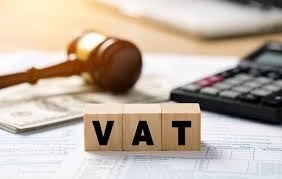In today’s fast-moving digital economy, businesses are constantly seeking smarter, faster, and more reliable ways to manage their accounts and tax responsibilities. One of the biggest challenges for business owners, especially in the UK and other VAT-regulated countries, is filing VAT returns accurately and on time. Traditionally, this task involved paperwork, spreadsheets, and long hours of reconciliation. But with the rise of cloud books—cloud-based accounting systems—VAT returns have become significantly easier, faster, and more accurate.
This article explains how cloud books simplify VAT returns, their benefits, and why businesses of all sizes should make the switch to cloud accounting.
What Are Cloud Books?
Cloud books, also known as cloud-based accounting software, are online platforms designed to store, manage, and process financial records digitally. Unlike desktop accounting programs that save data on a single computer, cloud books store everything securely in the cloud. This allows business owners, accountants, and bookkeepers to access the system from anywhere, at any time.
Some of the most popular cloud books include:
- QuickBooks Online
- Xero
- Sage Business Cloud
- FreshBooks
These platforms go beyond basic bookkeeping. They provide tools for invoicing, expense tracking, payroll management, reporting, and—most importantly—VAT return preparation and submission.
What Are VAT Returns?
VAT, or Value Added Tax, is a consumption tax applied to most goods and services. In the UK, VAT-registered businesses must collect VAT on taxable sales (output VAT) and can reclaim VAT on eligible purchases (input VAT).
A VAT return is the official document that summarizes:
- Total sales and purchases during the reporting period.
- Output VAT collected from customers.
- Input VAT paid to suppliers.
- The net VAT owed to HMRC or refundable.
VAT returns are usually submitted quarterly, though some businesses file monthly or annually.
With the UK government’s Making Tax Digital (MTD) initiative, VAT-registered businesses are now required to keep digital records and submit VAT returns electronically. This shift has made cloud books not only useful but essential for compliance.
How Cloud Books Simplify VAT Returns
Filing VAT returns manually is time-consuming and prone to errors. Cloud books streamline the process with automation and integration. Here’s how:
1. Automatic VAT Calculation
Every time a transaction is recorded, cloud books apply the correct VAT rate based on rules set up in the system. This eliminates manual calculations.
2. Real-Time Tracking
Cloud accounting systems let businesses view VAT liabilities in real time. Instead of waiting until the end of the quarter, owners can monitor what they owe at any time.
3. Digital Record Keeping
Cloud books store all invoices, receipts, and expense records digitally, ensuring compliance with MTD requirements. No more piles of paperwork or lost files.
4. Direct HMRC Submissions
Most leading cloud books integrate directly with HMRC. Once the VAT return is prepared, it can be submitted with just a few clicks.
5. Error Alerts
Before submission, cloud systems flag discrepancies or missing information, reducing the risk of penalties due to incorrect returns.
Benefits of Cloud Books for VAT Returns
1. Improved Accuracy
Manual VAT submissions often lead to mistakes. With automated calculations and error-checking features, cloud books reduce errors significantly.
2. Time Savings
What once took hours of manual reconciliation can now be done in minutes. Automation speeds up the entire process.
3. MTD Compliance
Since HMRC requires VAT-registered businesses to use MTD-compliant software, cloud books ensure you remain fully compliant.
4. Accessibility
Whether working from the office, home, or abroad, you can access VAT records securely online. Accountants and business owners can collaborate in real time.
5. Cost Efficiency
Cloud books reduce the need for outsourced bookkeeping and minimize penalties for late or incorrect VAT submissions.
6. Scalability
Cloud systems grow with your business. Whether you’re a freelancer, a small business, or a large corporation, there are solutions tailored to your size.
Cloud Books vs. Traditional VAT Accounting
| Feature | Traditional Accounting | Cloud Books |
| Record Keeping | Paper files & spreadsheets | Secure cloud storage |
| VAT Calculations | Manual | Automated |
| Filing VAT Returns | Separate HMRC portal | Direct HMRC integration |
| Accessibility | Office-based only | Anywhere, anytime |
| Accuracy | High risk of error | Built-in error checks |
| Compliance | May require add-ons | Fully MTD-compliant |
This comparison highlights why cloud books are now the preferred option for VAT returns.
Choosing the Right Cloud Books for VAT Returns
When selecting a cloud-based accounting solution, businesses should evaluate:
- HMRC Compatibility: Ensure the software is MTD-compliant.
- Ease of Use: Look for intuitive dashboards and simple navigation.
- Integration: Check whether it connects with payroll, e-commerce, or banking systems.
- Cost: Subscription fees vary—choose one that fits your budget.
- Customer Support: Strong support is crucial, especially during VAT deadlines.
The Future of VAT Returns with Cloud Technology
As governments worldwide push for greater digitalization of tax systems, the role of cloud books will only expand. Future innovations are likely to include:
- AI and Machine Learning: Automatically categorizing transactions and predicting VAT liabilities.
- Automated Tax Planning: Offering insights into reclaim opportunities or cash flow optimization.
- Global Tax Integration: Handling VAT, GST, and sales taxes across multiple jurisdictions.
Cloud books are not just about compliance—they are evolving into strategic tools for business decision-making.
Conclusion
Filing VAT returns can be stressful, especially for small and medium-sized businesses juggling multiple responsibilities. But with the introduction of cloud books, VAT management has become faster, more accurate, and far more convenient.
From automated VAT calculations and digital record keeping to real-time reporting and direct HMRC submissions, cloud books simplify what was once a tedious and error-prone task. They ensure compliance with Making Tax Digital while saving businesses valuable time and money.







